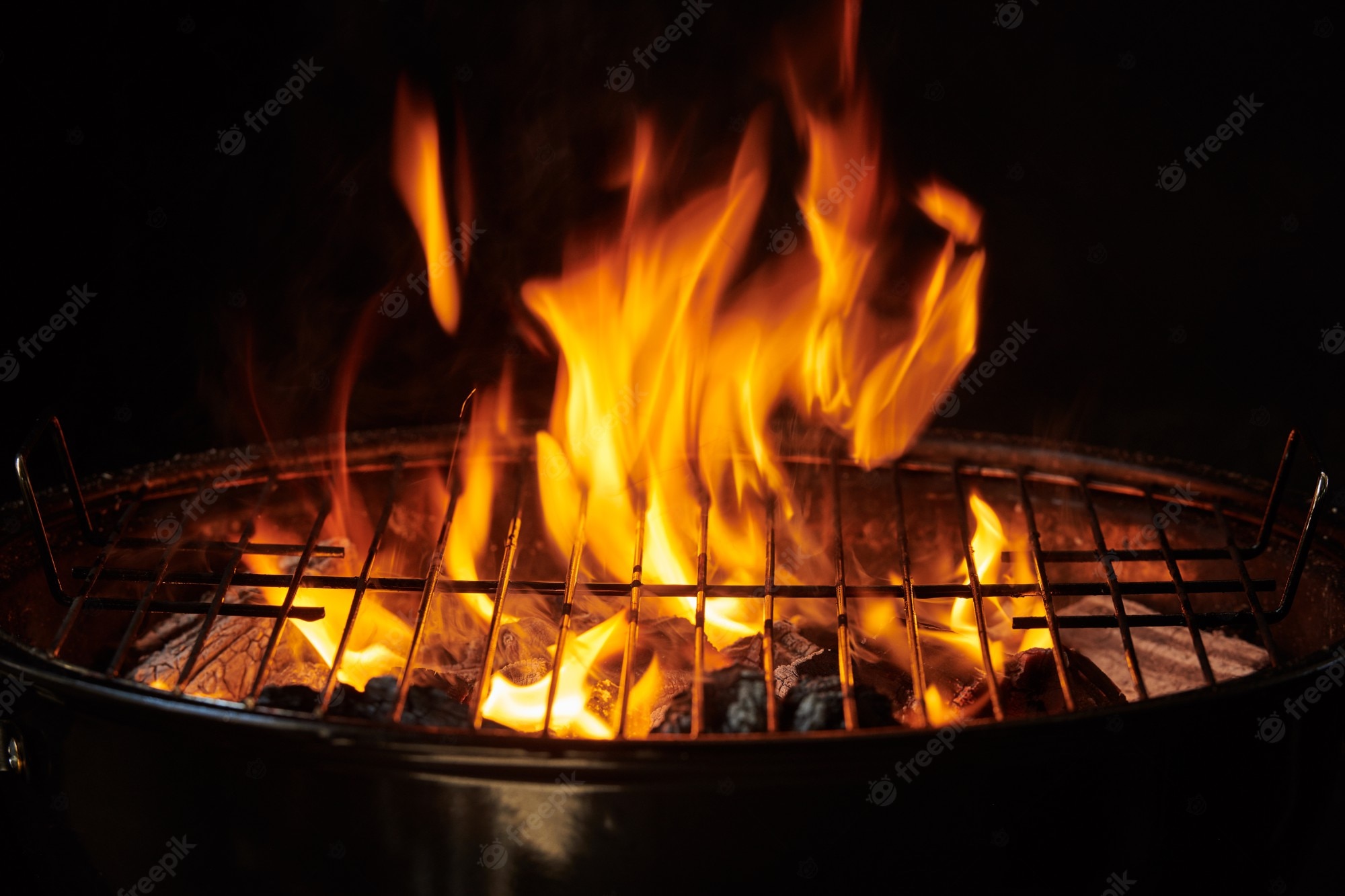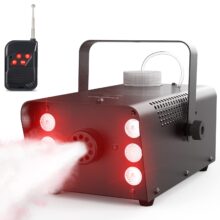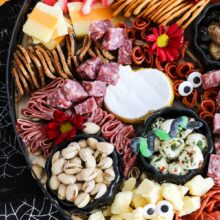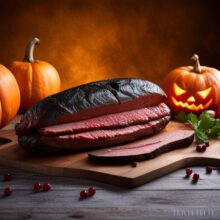Tips For Preventing a BBQ Fire

There are several ways to prevent a BBQ fire. Read on for some tips on how to plan your BBQ and what to do in case of a fire. Also, you should learn how to add wood to a fire. A barbecue fire is never pleasant, so always prepare ahead of time. However, if you do get a BBQ fire, don’t panic! These tips will help you prevent the occurrence of a fire and prevent it from spreading.
Preventing A BBQ Fire
When grilling, you have many options for controlling flames. Small flare-ups don’t reach the food, but they can add extra heat to the food. This may make the cooking time shorter than expected. If you are concerned about preventing a bbq fire, here are some tips to follow. Read on to learn more about these methods. Hopefully, these tips will prevent an unfortunate fire from happening to you.
First, don’t let your food sit in damp coals or wood. The damp wood or coals will not stay lit for long. If you want to keep the food from burning, you can move it to the cooler side of the grill. Similarly, don’t open the lid of the grill too early. This can cause flare-ups and even smoke. Aside from these tips, make sure your food is cooked over indirect heat as this will prevent flare-ups.
Another tip for preventing a bbq fire is to use a spray bottle. This way, you can put out small fires without moving the food. However, this technique won’t be effective in cases of large grease fires. It can also kick up ash onto the food. For this reason, it’s best to use a bucket or a metal spray bottle. You may also consider using a water-dispensing brush.
Preparing For A BBQ Fire
As summer approaches, the time for barbeque season is rapidly approaching. While BBQs are a fun way to gather with friends and family, they do come with a risk of fire and other hazards if not handled properly. In fact, some places prohibit the use of BBQs altogether, so it is important to follow the proper precautions before lighting your grill. Follow these steps to avoid potential fire hazards when cooking on your BBQ.
You’ll want to use a combination of thick and thin logs to create a roaring fire. Make sure the arrangement allows for the most air flow possible. Then place two dense logs on either side of your grill. Next, place three drier logs perpendicularly across the top. Once this is done, place the thicker logs on top of the thin ones, leaving an inch between each log. This process will create three distinct layers.
Make sure your barbecue is located in a dry, open space. Place a fire extinguisher nearby to put out any fires that might break out. Be sure to keep children and pets away from the BBQ. Use proper barbecue equipment, such as long tongs with insulated handles. Always use sustainably-produced charcoal when grilling. Charcoal that has been coppiced should be good quality and will not taint the taste of your food.
Putting Out A BBQ Fire
If you’ve ever had a barbecue, you know that putting out a flame can be a daunting task. But grill fires can also be very dangerous, so here’s how to put them out safely. The best way to do this is by following a few simple tips. For starters, try to evacuate any people nearby if there are propane tanks involved. Make sure to move all of the food from the grill to a metal container, as the grease may ignite a flare-up.
First, don’t use water squirts, as these can actually feed the fire and make it worse. Water squirts can also leave an ashy mess, and they’re ineffective for putting out coals. A water squirt may only extinguish a small flare-up or small fire, so be sure to get a heavy-duty trash can for the task. A high-quality trash can will not be damaged by hot coals.
If you’re using a propane tank, remove yourself from the area, and call emergency services. If you’re unsure of how to put out a grease fire, call the fire department immediately. Remember, water and oil don’t mix – putting water on a fire with oil will cause splashing, spread the burning oil and cause severe burns. If the fire is a major grease fire, do not use water to put it out – it will only ruin your meal.
Adding Wood To A BBQ Fire
One of the best things about cooking over a fire is the ability to add wood. The resulting smoke gives the meat a special taste that no other cooking method can match. Adding wood takes some experimenting to get right, but these tips should help beginners get started. The wood you use will determine how much smoke you want in your food. Luckily, there are three basic sizes. To get started, simply purchase a few logs of the right kind of wood.
When using wood to cook on a BBQ, make sure you burn hardwood. Wood is made from the xylem of a tree, which transports water and nutrients. Wood must be burned for several minutes to reach the desired smoke level. Fresh-cut wood will steam and produce off-tasting smoke, so make sure you use wood that has been air-dried for at least six months. Wood that is treated with chemicals or seasoned is not good for cooking because it can release harmful substances into your food.
When preparing wood for a BBQ fire, always make sure you have plenty of space to place the wood. You can find free smoke wood at hardware stores and online. Wood pellets and chips should be no bigger than a baseball or golf ball. Be careful, though; don’t use wood that smells bad or has mold or mildew on it, as they will not burn off and impart a foul flavor to the food.
Avoiding Flare-ups
While flare-ups are an inevitable part of grilling, they can ruin the taste of your food. While a few small flare-ups add a nice grilled flavor to your food, large ones can ruin the appearance of your burger. Follow these tips to avoid flare-ups when grilling. These tips will make your burger and every grilling experience better. Read on for more tips.
One of the biggest problems that home chefs encounter when grilling is a flare-up. While these fires die down quickly, they still scorch the exterior of food. In extreme cases, the charred edges may render the food inedible. Fortunately, preventing flare-ups is relatively simple. Follow these tips to ensure that your food doesn’t end up burned or scorched. Once you have learned how to control flare-ups, grilling is a breeze.
A simple way to prevent flare-ups is to make sure your grill is preheated. By preheating your grill, you will prevent excess fat and oil from collecting in your grill. Furthermore, you will avoid flare-ups by reducing the amount of fatty foods you cook on the grill. You can also use a grill basket to catch the melted fat. In this way, you can avoid flare-ups by using less oil on the grill.
To avoid flare-ups when grilling, trim the fat from your meat. Excess fat can cause the flare-up because it will release more drippings on the grill. You can also use a cutting board to cut away the excess fat from the sides. Moreover, trimming the fat is beneficial for grilling but it does not mean you should cut the meat out completely. Trimming the fat from your meat will prevent flare-ups and keep the meat juicy.
Cleaning A BBQ Grill
There are many ways to clean a BBQ grill, but the most basic method is to use a good cleaning spray. You can also use a 50/50 solution of water and white vinegar. This mixture will remove most food particles and is an effective way to clean a porcelain-coated BBQ rack. Follow these instructions to clean your grill and make it look like new. If you have a porcelain-coated rack, you should use a brass-bristled grill brush.
Before cleaning your barbecue, make sure it is free from rust, and take the time to inspect for rusted knobs. Check that the grates and grills are securely in place. If they have fallen off, you may want to scrubbing them out. Lastly, brush out any cobwebs that may be stuck to the grill and give everything a good wipe with a damp cloth.
After you’ve completed this step, you should then remove the removable parts of the grill, such as the grate. You should also thoroughly clean the body of the grill with warm water and dish soap. Work gloves are highly recommended when you’re cleaning the exterior of the grill. After cleaning the grill, you can then ignite it and cook your food again. It is advisable to use a non-flammable liquid to avoid risking a fire.
Read more great BBQ articles at Bob’s BBQ Secrets
Did you miss our previous article…
https://notoriousbob.net/?p=1705


